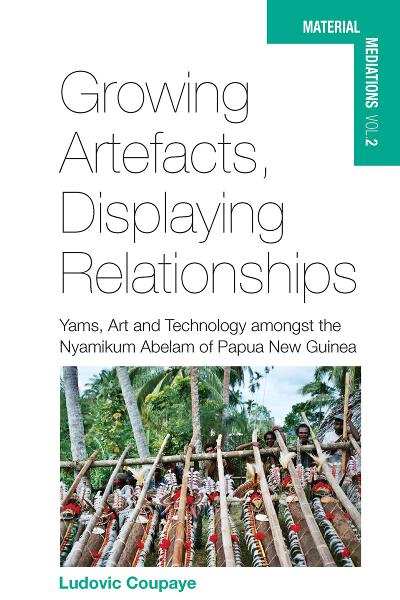
Series
Volume 6
Worlds in Motion
See Related
Anthropology JournalsEmail Newsletters
Sign up for our email newsletters to get customized updates on new Berghahn publications.
Bourdieu and Social Space
Mobilities, Trajectories, Emplacements
Deborah Reed-Danahay
170 pages, bibliog., index
ISBN 978-1-78920-353-0 $120.00/£92.00 / Hb / Published (November 2019)
ISBN 978-1-80073-641-2 $29.95/£23.95 / Pb / Published (November 2022)
eISBN 978-1-83695-965-6 eBook
Reviews
“…this book is a useful guide to Bourdieu’s work. Recommended.” • Choice
“In this fine book, Reed-Danahay provides a sensitive and sophisticated analysis of the transformations of the meaning of social space in Bourdieu’s numerous studies. It is recommended reading for all those interested in his work.” • Journal of the Royal Anthropological Institute
“By collecting so many of Bourdieu’s writings on space in one place and presenting them so transparently, Reed-Danahay has produced a valuable reference work. As such, this book will be of interest to any scholar interested in approaching space from a Bourdieusian perspective or deepening their understanding of Bourdieu more generally, and it would serve as a helpful companion to Bourdieu’s original work for scholars of mobility. For well-prepared scholars, Bourdieu and Social Space presents the reader with many tantalizing suggestions of Bourdieu’s unruly theory-in-the-making and acts as an invitation for fresh theorizing on the intersections of space, place, mobility, and society.” • Contemporary Sociology
“Deborah Reed-Danahay is an excellent reader and mediator of Bourdieu’s studies and publications. For readers who want one more book that will help them get an even deeper understanding of the relationship between Pierre Bourdieu’s social trajectory and his scientific work, this is an absolute masterpiece.” • Anthropology Book Forum
“The book poses relevant questions on the interpretation of Bourdieu’s oeuvre, mobility itself and the development of the European Union…As Reed-Danahay’s work shows, the study of the relationship between physical space and habitus can provide useful new perspectives also for the spatial sciences. Reading this work can help to understand Bourdieu’s approach, making the book’s statements worthy of further reflections. As a geographer, I found Reed-Danahay’s views on the importance of space in Bourdieu’s practice theory particularly useful.” • Térés Társadalom
“Explains Bourdieu’s neglected concept of social space, and even takes it to a new level by relating it to migration, mobility and emplacement, as well as to the nation-state and the European Union… destined to become a standard reference work.” • Helena Wulff, Stockholm University
“This is an excellent piece of work that is both useful and thoughtful. It addresses much of the corpus of Bourdieu’s work but provides an analysis of this rich and complex material in an accessible manner.” • Vered Amit, Concordia University
Description
French sociologist and anthropologist Pierre Bourdieu’s relevance for studies of spatiality and mobility has received less attention than other aspects of his work. Here, Deborah Reed-Danahay argues that the concept of social space, central to Bourdieu’s ideas, addresses the structured inequalities that prevail in spatial choices and practices. She provides an ethnographically informed interpretation of social space that demonstrates its potential for new directions in studies of mobility, immobility, and emplacement. This book traces the links between habitus and social space across the span of Bourdieu’s writings, and places his work in dialogue with historical and contemporary approaches to mobility.
Deborah Reed-Danahay is Professor of Anthropology at The State University of New York at Buffalo. Her previous 5 books include Locating Bourdieu and Auto/Ethnography: Rewriting the Self and the Social. She has been named Chevalier dans l'Ordre des Palmes Académiques, and is a former President of the Society for the Anthropology of Europe.
Subject: Theory and MethodologyMobility StudiesSociology
Contents
Download ToC (PDF)




